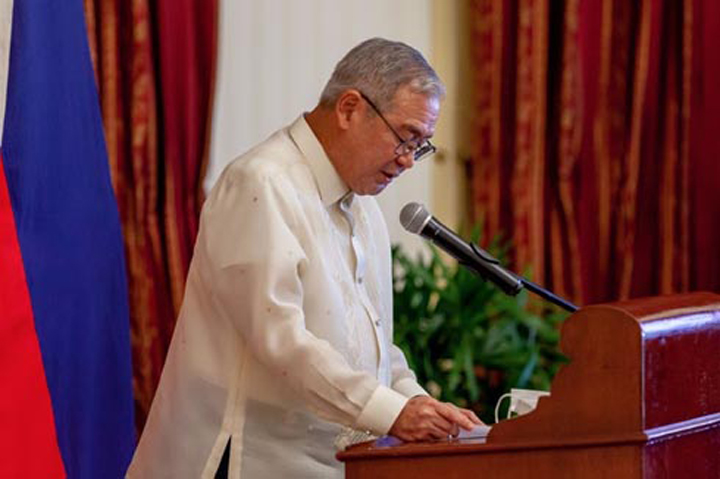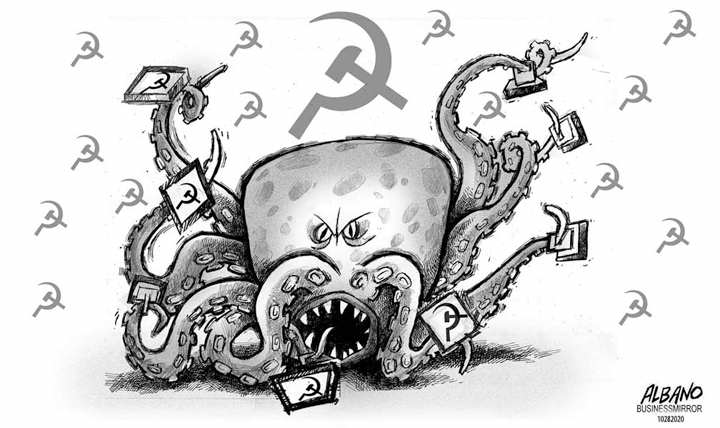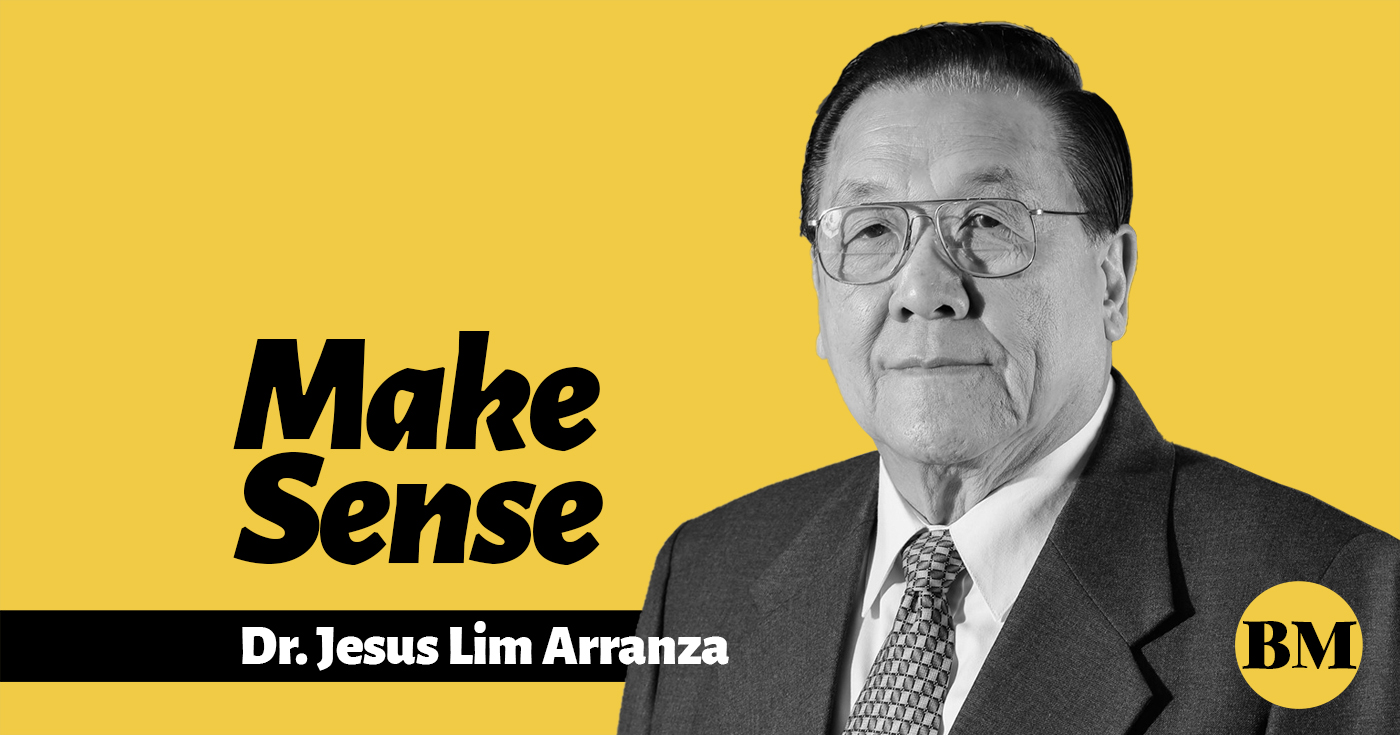(Keynote address of Foreign Affairs Secretary Teodoro L. Locsin, Jr. at the Virtual Conference of the Asia Society on October 27, 2020)
Ambassador Josette M. Sheeran, President and CEO of the Asia Society; the Honorable Kevin Rudd, President of the Asia Society Policy Institute; Mr. Tom Nagorski, Executive Vice President of the Society; esteemed guests. Good morning from Manila.
The annual talk at the Asia Society is a cherished hope and tradition during the UN General Assembly High Level Week. Last year I enjoyed that privilege; and had lots of fun. I was looking forward to the same this year. Instead you invited my president. He must have seen my pleading look because he passed it on to me. Thanks. But it won’t be the same.
I miss New York and I can’t depend on media telling how things are really going in my city. The dry humor is still there; Andrew Cuomo asking, “What’s this with the mask pulled down? A chin guard?”
Let me inflict a little Camus on you: “How could I… we… have “given a thought to anything like plague, which rules out any future, cancels journeys, silences the exchange of views?” But then there’s Zoom. It works. You can pretend to listen while multitasking. It works so well I announced I’d cut the budget for travel. The groans in the Department came as though from the First Circle of Hell. I used to be the Secretary of Foreign Affairs but since Covid I’ve become the Secretary of Repatriations of jobless overseas Filipinos. As well as of Expatriations. We took it on ourselves to sweep up stranded foreigners. The Secretary of Tourism rolled up her sleeves; game to help the tourists get out even if it shrunk her jurisdiction. I was told this was crazy. Until foreign governments started heaping praises.
The pandemic is said to have caused the retreat of states into themselves. In the race for a vaccine it has been a game of to each his own, and of money trumps solidarity. Well, that’s not how I’ve seen it. Here in Asean the first reaction was, “Whatever it is, it’s all over the place; we gotta help each other lick this thing wherever we find it. If we focus each on ourselves the virus will be back with us.
Leave no one behind or he’ll turn up among us infected. Everyone safe or no one.” Other countries and powers followed. One advanced country after another announced progress in finding the vaccine and at the same time committing to make it a public good. Did you notice that? It’s a good world after all.
I warned that the vaccine is a reverse weapon of mass destruction. If delivered but withheld people will die in droves. If denied or delayed to any country, the UN and multilateralism are finished. The virus can strike a country, debilitate its population, devastate its economy but it cannot finish it off. It will survive to give vent to its fully justified hate in ways worse than we have seen. This time it will be personal and not just ideological.
Eight months into this crisis the world is nowhere near a solution. Rather the world has entered a second wave. Yet it is not for want of trying. Sure, in the West, many won’t submit to restrictions; gotta admire the spirit of freedom at great personal risk; and when they sicken they don’t blame anyone except maybe China; but the reckless disregard of others’ safety…I don’t know what to make of it.
In his address before the UN General Assembly, President Duterte made it clear: how we address Covid-19 will define our future. For the Philippines, he said, that means putting people at the core of our global response. Hence his priorities: save lives, halt the contagion, keep the economy afloat; let it sink a bit to spare more lives. And reach out to countries developing vaccines.
From the outset President Duterte took decisive action, imposing the longest strictest lockdown anywhere, with interventions defined by responsiveness and quick adaptability to a varying new normal.
He set up an Inter-Agency Task Force. And it got the usual complaints: “The rules keep changing, no consistency; call that a plan?” They sounded like New Yorkers. But that is because the Task Force meets daily and reacts promptly to new data. It’s been with us like everywhere else except South Korea — boy, those people are really smart: we’re making things up as we go along, and when something works long enough, we call it a work in progress. The only plans that don’t change are Memorial Plans but you still get to pick tombstone.
By and large the public cooperated; the fear factor kicked in and increasingly entrenched itself. The economy took a beating so we relaxed a bit; but people still stayed home. At best they brave exposure to earn a living. Commerce was in ICU.
Health care is an issue immune to political misunderstanding and misinterpretation unless the plan is to wipe them out by letting the disease take its course. But herd immunity was never in the cards for the President. Now liberals will tell you, the herd elected him. That’s why liberals never win. For him the overriding aim is to save lives; he won’t hear the alternatives. The herd responded: in the latest survey he got 91% approval rating.
The liberal opposition dropped into a depression as the economy plunged into recession. But strong economic fundamentals and sufficient fiscal space generated by 3 administrations including the present put us in a strong position to take the beating.
The pandemic inadvertently hastened our shift to a digital economy. That is regarded as good. The slogan is we’ll build back better.
I don’t believe it. We will never build as well as we were complaining about, like needing scores of workers for tasks cheaper and faster done by a few computers and self-driven machines. The bad old days gave us more jobs and more prosperity than I can imagine recovering anytime soon, if ever. That’s why, minus the pandemic, we’d never have gone so far digital as we have just to keep going. The song’s right: things will never be as good as the way they were.
It is no secret: our economy runs in large part on Filipino migrant workers’ remittances; some 10 million of them. Their contributions are why we survived the Mexican Debt Crisis, the Asian Crisis, and the Global Financial Crisis when Wall Street held up the world. And now the pandemic. But migrant workers are among the worst hit by it.
Our seafarers, who make up 30 percent of global maritime labor found themselves dead in the water in empty cruise ships or laid off as cargo shipping dropped. The President has been bringing them home; 200,000; another hundred thousand still out there. We want them home for Christmas.
Our health care workers have suffered. For many countries they are indispensable; reputed for their expertise, efficiency, compassion and genuine care for patients.
In the US alone, there are 156,000 Filipino nurses and doctors. In the UK, tens of thousands; Her Majesty awarded one to honor them all. We have asked host countries not to exclude them from their Covid-19 safety nets. They have responded well. It’s a good world after all.
Only science can take us out of this darkness; votive candles don’t have the candle power. But prayer without the frills helps. At the UN, President Duterte said, “When the world finds that vaccine… it should be made available to all, rich and poor nations alike. It must be considered a global public good.” Universal access is imperative, and not conditioned on requiring any people, class or country to submit to another’s will as the price of cure. That’s the only decent thing to do.”
To Asean I said: cures and vaccines will come from outside: Russia, China, the US, the UK; not from within the region. So focus on building up capacity to make and distribute when they’re ready. Preparing for future pandemics is good to keep in mind; but until this one is licked let’s stick to that.
When I spoke with Secretary of State Mike Pompeo in August, I told him that the President’s highest priority is ensuring access to a safe and effective vaccine, once available. He said, “Right.” A few hours later, my ambassador in Washington called that Pfizer/Moderna got in touch. I’m in talks with Astra-Xeneca. In Yennan last week, Wang Yi said to me that President Xi is good for his word, “the Philippines has priority of priorities.” It’s almost ready. A former Congress colleague of mine has taken it. We’re all watching him for adverse effects; but he’s a congressman and therefore indestructible. Except for me. My doctor says I’m too old, not to risk it. What happened to “the most vulnerable first.” I thought the rush was to save my age group. What are we now, Eskimos?
I have increasingly been asked where the Philippines stands in the Thucydides Trap. True, no other country probably feels the significant impact of the rivalry between the two superpowers more than the Philippines, the US being its only defense treaty ally and China, its biggest neighbor and top economic partner — with the US second. Great.
I echo my remarks at Asia Society last year: An independent foreign policy means getting off your knees and on your feet — and standing up for your country.
And never be used by others to fight their quarrels. The end of that is always you as everyone’s enemy; and you hanging from a limb with one hand while holding an empty bag with the other. That is the prospect the Philippines seeks to avoid in all the Western anxiety over the South China Sea.
Our independent foreign policy applies to all, and certainly with China as well. The President steadfastly steered Philippines-China relations along two tracks: the track of good relations to realize the manifold promise of economic cooperation with a rising China; and the track of firm, unshirking resolve to protect every inch of our sovereignty and sovereign rights under the UNCLOS, as clarified and affirmed by the 2016 arbitral award. At the UN, the President affirmed that the Arbitral Award is now part of international law, beyond compromise and beyond the reach of passing administrations to dilute, diminish or abandon. And he firmly rejected attempts to undermine it
The Philippines depends on one thing only, okay, two: itself and international law, of which UNCLOS and the 2016 Arbitral Award are a part. The Philippines won the Award with zero help from anybody and with great hindrance from most. It welcomes international support for the Award — better late than never; but in no way does the Philippines acknowledge that support as adding an iota to the legal stature of the Award.
That said, I think all the protagonists in the South China Sea share our steadfast commitment to peace and stability especially in this pandemic which, alone, is more than any or all of us can handle.
In that August phone call, I thanked Secretary Pompeo for his statements affirming support for Southeast Asian coastal states’ maritime claims, in our case, outright rights, in the South China Sea. I appreciated the United States’ articulation of the 2016 Arbitral Award as final and binding, its call for compliance, and its recognition of the Award as authoritative interpretation of UNCLOS. That is a great leap over the period of a year. I recall that in my remarks last year, I observed that the US position is always shy of supporting the arbitral award by insisting only on unrestricted freedom of navigation.
The United States is essential to maintaining stability in the Asia-Pacific. It is the only hegemon in history who can be trusted to do the job without ulterior motive other than keeping its lead — to do that job. A power imperial in its scale, without an iota of empire in its mind. Notably, when we put a brake to the abrogation of the Philippines-US Visiting Forces Agreement, it was welcomed not only by the US government and the private sector but also by all the protagonists in the South China Sea without exception.
This is recognition that the presence of US forces, by VFA or another arrangement, is key to keeping stability in the region; even for those — to borrow from Snow borrowing from Pascal — on The Other Side of the River.
At the Asean-US Post Ministerial Conference I listened with great interest and increasing confidence in our safety and sovereignty, to Secretary Pompeo lay out the US strategy to keep the peace through a powerful and permanent, no longer intermittent presence in Southeast Asia. Ernest Hemingway’s advice for effective writing is to show it, not tell it. Talk’s cheap; action commits. Works in diplomacy as well.
To be sure, this strategy raises tensions and that’s unnerving. But even worse than unnerving is losing your nerve because, out of a misplaced complacency, we end up getting a wake-up call from the interloper himself already in our living room, helping himself to the bar, and asking you if you have peanuts to go with the drink. That’s when the tension becomes so unbearable it results in either of two things. Either giving the interloper the keys to the house. Or trying to throw him out which is sure to be hard going.
That is because no one self-respecting, however small and seemingly weak, will ever give up what is essential to its being: territory. Because territory is the body of a nation even as courage is its soul. No courage, no soul. In saying this I mark out no power in particular but anyone, even among us in Asean who takes what is ours and, because of our treaty, what is yours.
Each of us must stand firm and uncompromising in our national interests; in the firm and well warranted belief that none will care for another’s interest until the latter shows it can take care of itself. We can agree to disagree on that score. But we all agree that there is no other way but to settle the score.
Despite Covid-19, and perhaps even because of Covid-19, China’s ascendancy is beyond cavil, not just in Asia-Pacific but worldwide. Graham Allison has added to the Thucydides Trap a report that China is now the No. 1 economy in the world. I said that here last year, and I say it again. China has done more by its economies of scale to democratize consumption worldwide with products that would otherwise be limited to the better-off few. As Dave Chapelle quipped, “Take the jobs back home? You wanna pay $9,800 for an iPhone?”
China is accused of imperialist ambition, as evidenced by the Belt and Road Initiative. But in Brussels I said that if European imperialism had adopted the methods of so-called Chinese imperialism — by throwing huge development projects at its prey — European empires would still be around. The question remains the same: do we allow the reefs, with the conflicts they generate, to get in the way of eating off that buffet? The answer is a quiet but firm no. We’re finding ways to keep our cake and have the other one too. That said, Gandhi said, consistency is the bugbear of small minds. Some of my views, and perhaps the very angle from which those views come, may change after I finish reading General McMaster’s Battlegrounds, The Fight to Defend the Free World. I had the honor to meet and listen to him in the White House; he is arguably the best military mind since Harry Summers’ On Strategy; both equally lucid and crystal in their presentations. Thank you.
Image credits: US Embassy, DFA


























